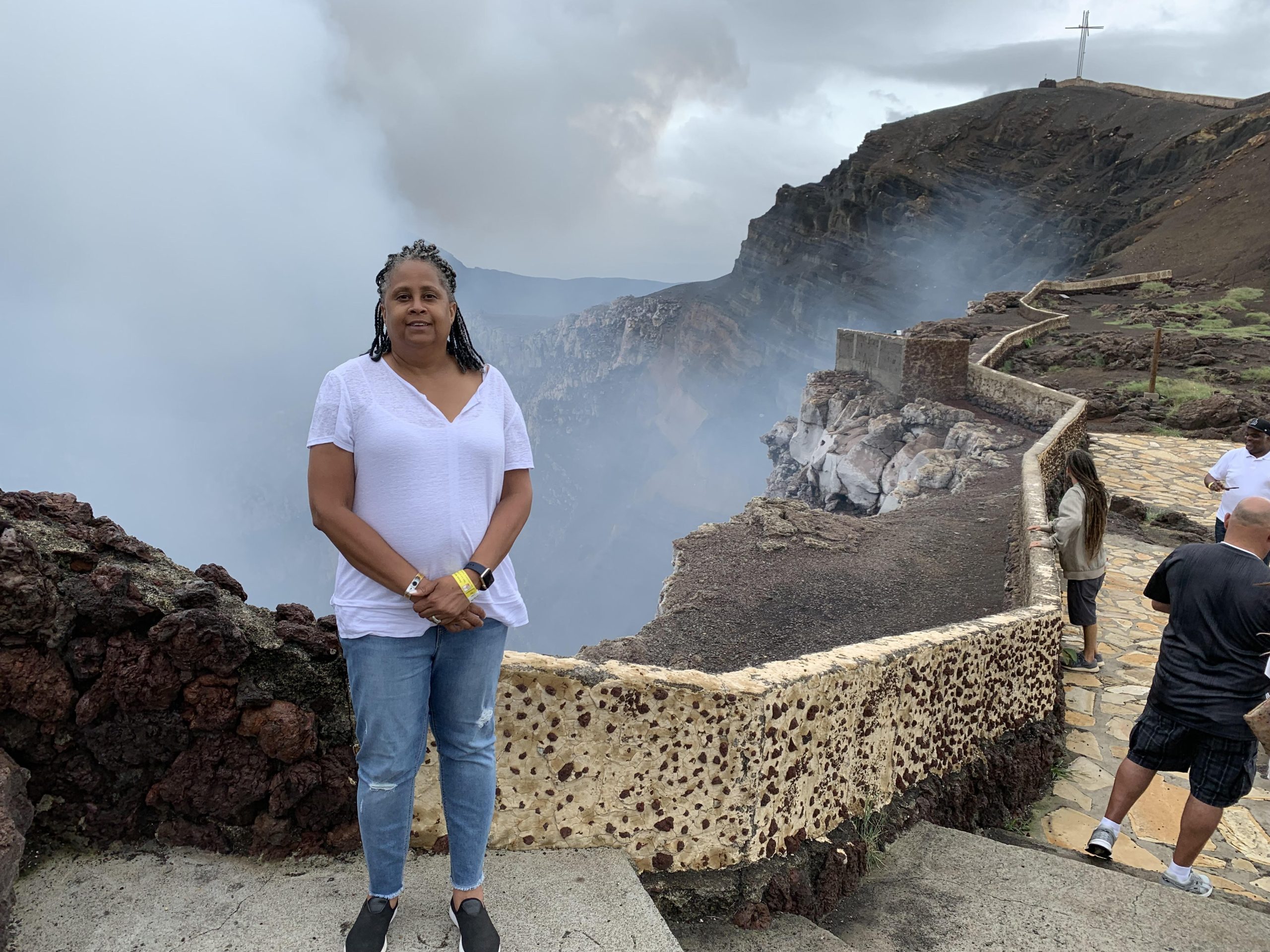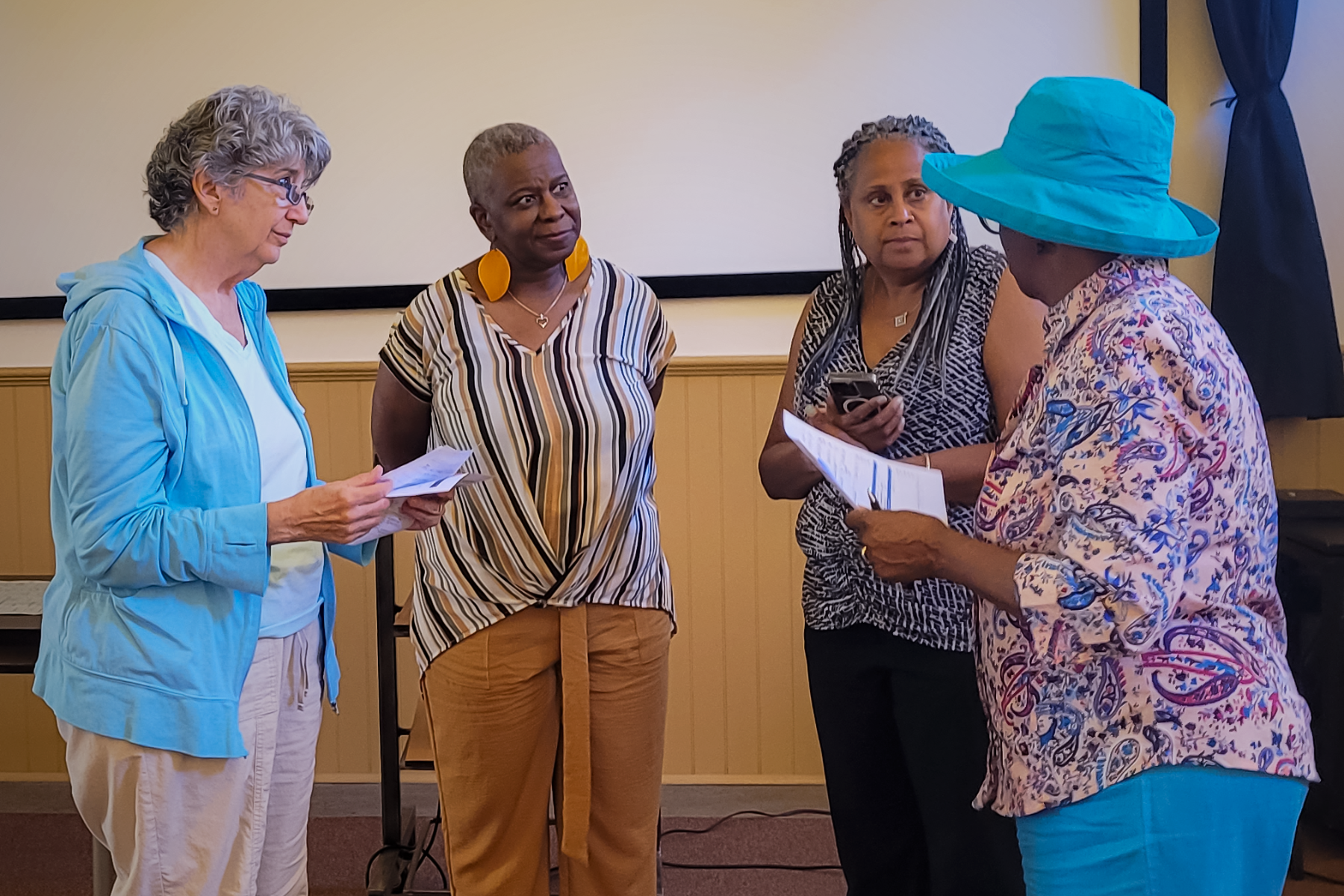Above: Albina House History Research Workshop - Held in August at the Architectural Heritage Center, the research workshop attracted over a dozen participants who learned best practices for researching the history of historic buildings. Photo by Restore Oregon. Pictured here (left to right) is Sandy Southern, Deborah Roache, Kimberly Moreland, and Donna Maxey.
Update on our Albina Preservation Initiative - Volunteer Research
Restore Oregon launched the Albina Preservation Initiative (API) in 2023 to help bridge the gap between traditional historic preservation practices and the lived experiences of BIPOC communities to create a safe space for difficult discussions, document and share Black preservation methods and stories, and establish a path forward for inclusive preservation statewide. Funding for this project was made possible from a generous grant from the Mellon Foundation and the Pacific Northwest Just Futures Institute for Racial and Climate Justice, University of Oregon.
This hands-on initiative has thus far included our Urban Racial Justice Field School, hosted last June at the Mayo House in Northeast Portland, by our partners at Clatsop Community College’s (CCC) Historic Preservation & Restoration Program . And, last August, our Albina House History Research Workshop, was held at the Architectural Heritage Center and taught by Val Ballestrem. The research workshop attracted over a dozen participants who learned best practices for researching the history of historic buildings.
Many of these workshop participants became part of our citizen-led research work. Over a dozen volunteers have assisted with researching and documenting historic resources in Albina, and have received a stipend for their work. This research effort, which will soon be submitted to Oregon Black Pioneers for the development and publication of an interactive StoryMap, is being led by Kimberly Moreland, owner of Moreland Resource Consulting. Under her leadership, volunteers attended an API research orientation and an additional special training at the Oregon Historical Society taught by Renato Rodriguez, Research Librarian. Of 47 properties in Northeast Portland identified for research, volunteers completed documentation of 10, including the completion of draft Historic Resource Records, which are the first official step towards determining a property’s eligibility for listing in the National Register of Historic Places. Research for an additional 30 properties is being completed by Ms. Moreland, who is “immensely grateful for working with volunteer researchers, who, with varying levels of historical research experience and background, were all committed to the project.”
Ms. Moreland, whose background includes extensive work documenting and preserving Black history, extolled the importance of getting community members involved in preservation efforts because it provides an opportunity “to learn more about local Black history, gain new research skills, and conduct research on a historic property.”
All properties researched fall within the African American Resources of Portland, Oregon (1851-1973) Multiple Property Documentation (MPD) approved by the National Park Service in 2020, and have relevance to one of the MPD's seven historical context themes. Look for our announcement of the publication of Oregon Black Pioneers’ StoryMap later this year.

Left: For over three decades, Kim Moreland has dedicated herself to working with local governments, non-profit organizations, businesses, and community members to design, research, and implement heritage projects that have enhanced the quality of life, economic opportunity, and social cohesion of the communities she serves. Kim’s work is most notable for her focus on the preservation of African American heritage in Oregon, a woefully underrepresented group in Oregon’s historic record.


